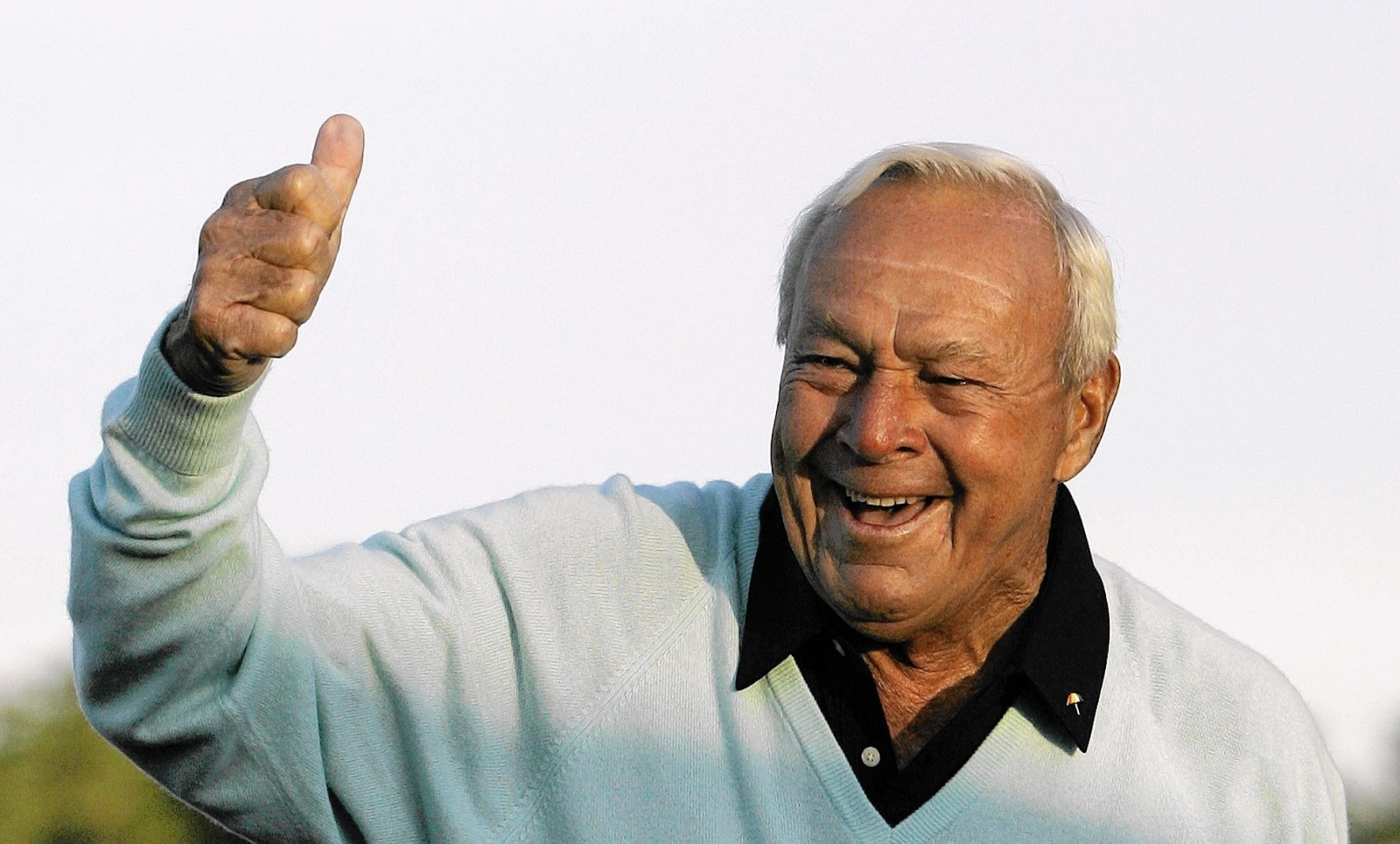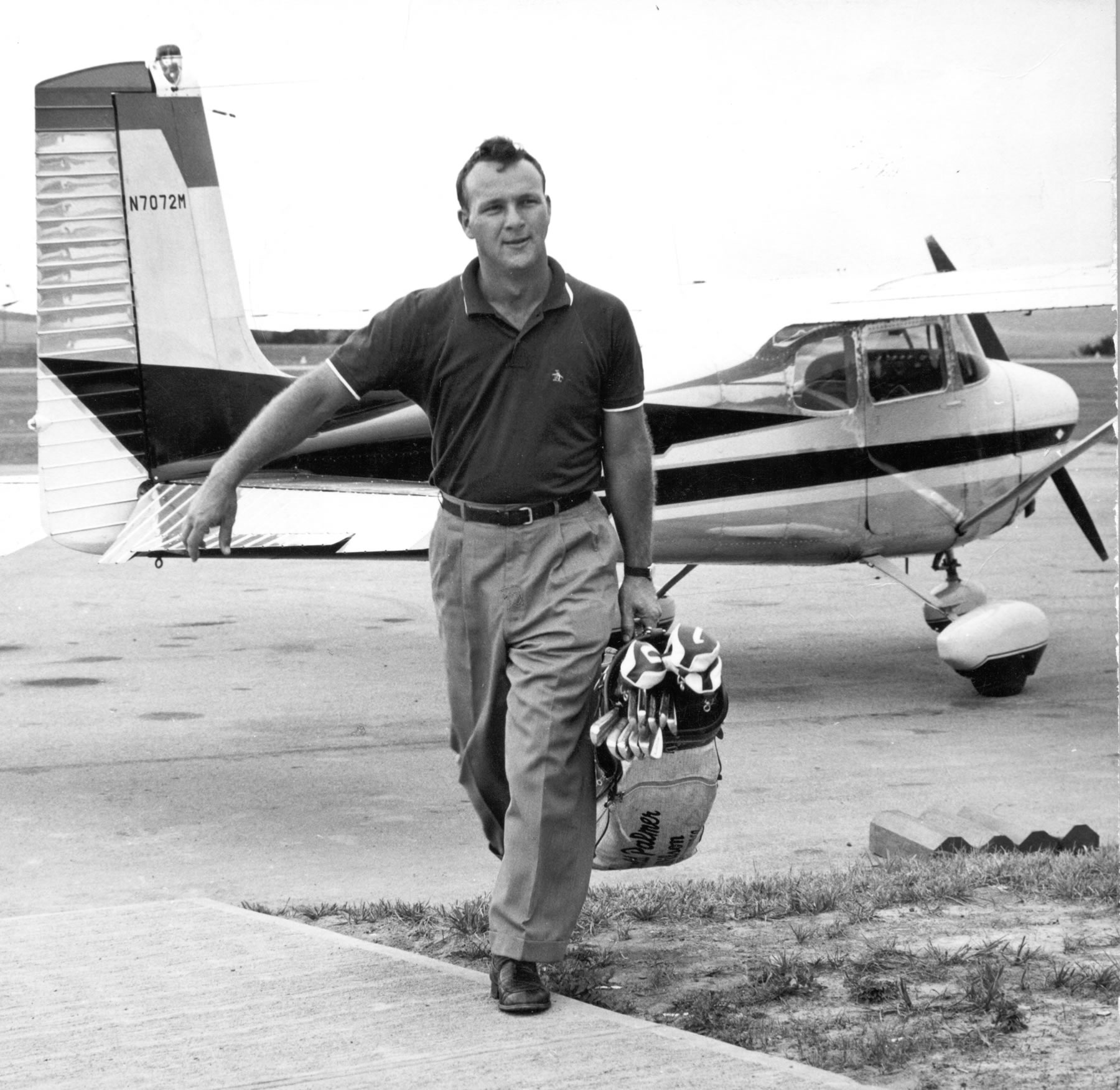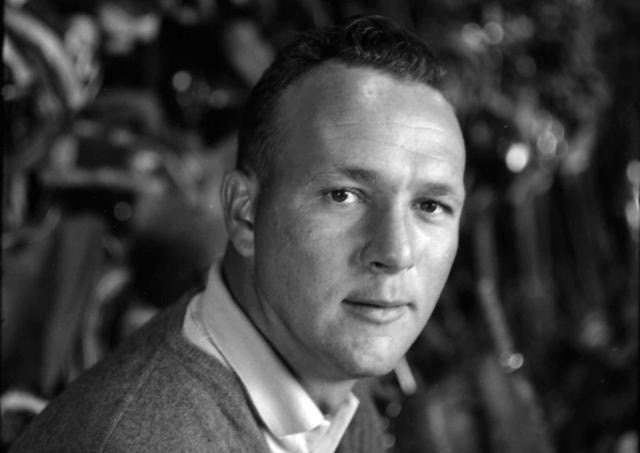Arnold Palmer, one of the greatest players in the history of the game, has died in Pittsburgh, Pennsylvania, at the age of 87.
The seven-time Major winner had been suffering from ill health in recent years. He gave up his role as honorary starter at this year’s Masters, posing with Gary Player and Jack Nicklaus on the first tee at Augusta, but unable to swing a club following a shoulder injury.
Tributes have poured in from the world of golf and beyond, with his great rival Jack Nicklaus describing Palmer as a ‘legend’ and an ‘icon’, but also ‘one of my best friends’. ‘He was the king of our sport and always will be,’ Nicklaus wrote on Twitter. “He took the game from one level to a higher level, all by himself.”
Tiger Woods thanked Palmer for his “friendship, counsel and a lot of laughs’. “Your philanthropy and humility are part of your legend,” Woods said on Twitter. “It’s hard to imagine golf without you or anyone more important to the game than the King.”
Rory McIlroy, who was told of Palmer’s death just minutes after having won the Tour Championship and the FedEx Cup, was visibly moved when he heard the news.
“I don’t think anyone in any sport has left a legacy like Arnold Palmer,” said McIlroy. “It is incredible what he did, his character, his charisma, everything about him.
I was just so fortunate that I was able to spend a little bit of time with him in the last couple of years. I will always cherish that and remember that.

He was a very good man and a very generous man. He will live long in the memory of a lot of people.”
Winning the Canadian Open in his first season on tour in 1955, Palmer stepped up to the big leagues when he won the Masters in 1958, with his stunning victory at Augusta capturing the imagination of the public, as well as the attentions of an Ohio-based lawyer, and fledgling sports agent, who went by the name of Mark McCormack.
McCormack saw the 28-year-old Palmer’s potential to elevate golf to a new level in the public consciousness, and signed him up as International Management Group’s first ever client.
The partnership was as inspired as it was successful. Rather than concentrating on tournament victories – although there were plenty of those – McCormack focused on promoting his client’s personality to create a brand with global appeal.
Palmer’s swashbuckling playing style lured new fans to the game, fattened tour prize money, boosted TV ratings, and helped usher in a colourful new era for what was previously a very grey and dull sport played mainly by the older generation.

Palmer went on to claim seven majors – six of them in the five-year period between 1960 and 1964, when he firmly established himself as a star of world sport and established a rivalry with Jack Nicklaus.
He won a total of 95 tournaments during his career. He played six Ryder Cups, all marked by victory, and captained his nation to comfortable glory in 1975.
While Nicklaus and Gary Player may have won more majors than ‘The King’, neither had nearly as many fans.
Palmer’s popularity single-handedly elevated the Masters – which he won four times – from an also-ran invitational into the massive commercial enterprise that it is today, while his victories at the Open Championship in 1961 and 1962 helped revived a tournament that most Americans used to swerve because of its small prize fund and the high cost of travel.
Despite a deep-seated fear of flying, Palmer travelled back and forth across the Atlantic to build up his global following, and even learned to fly his own plane to help conquer his anxiety of being up in the air. His last flight was in 2011, aged 81, from California to Orlando.
The son of a country club greenskeeper, Palmer said his upbringing helped him find success on the golf course.

“When I was six years old, my father put me on a steel-wheeled tractor. I had to stand up to turn the wheel. That’s one thing made me strong.
The other thing was I pushed mowers. In those days, there were no motors on anything except the tractor. The mowers to cut greens with, you pushed.”
While he won just under $2 million from a 53-year playing career – a sum that Jordan Spieth eclipsed just by winning last year’s Masters and US Open.
Palmer amassed a fortune of over $1.3 billion from his off-course activities. His empire stretches across a variety of enterprises and continents, from the aforementioned tea-based drinks brand, which has an annual turnover some way north of $200m, to his Florida-based golf course design business, which has built dozens of courses around the world, and put its name to countless others as part of a shrewd franchise deal that trades on his good name.
According to Forbes magazine’s 2015 Rich List, Palmer ranked only second behind basketball legend Michael Jordan in terms of earnings achieved by a retired sportsman, with over $40 million banked last year alone.
A large percentage of his income came from licensing out his brand – a deal that sees his name above the door in over 400 shops in Asia, which sell clothing and leather goods bearing Palmer’s famous multi-coloured umbrella logo.
Palmer won the PGA lifetime achievement award in 1998, and was one of the 13 original members of the World Golf Hall of Fame.
In 2004, he became the first golfer to be awarded the Presidential medal of freedom, and five years later became the second, after Byron Nelson, to be awarded the Congressional gold medal.
Palmer’s first wife, Winifred Walzer, whom he married in 1955, died of cancer in 1999. He married Kathleen Gawthrop in 2005, and he is survived by her and his two daughters, Peggy Palmer Wears and Amy Palmer Saunders, as well as six grandchildren and nine great-grandchildren.



